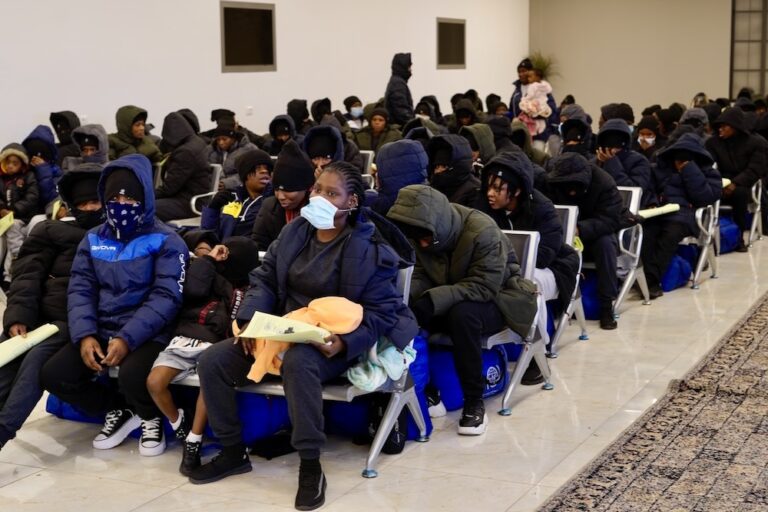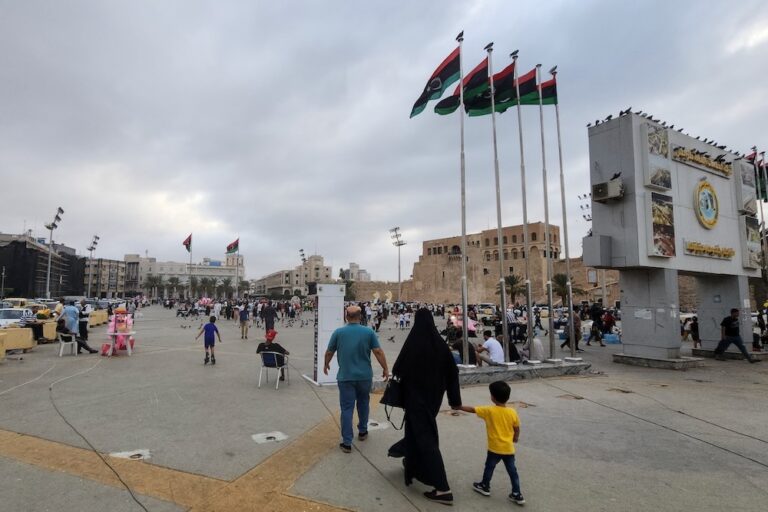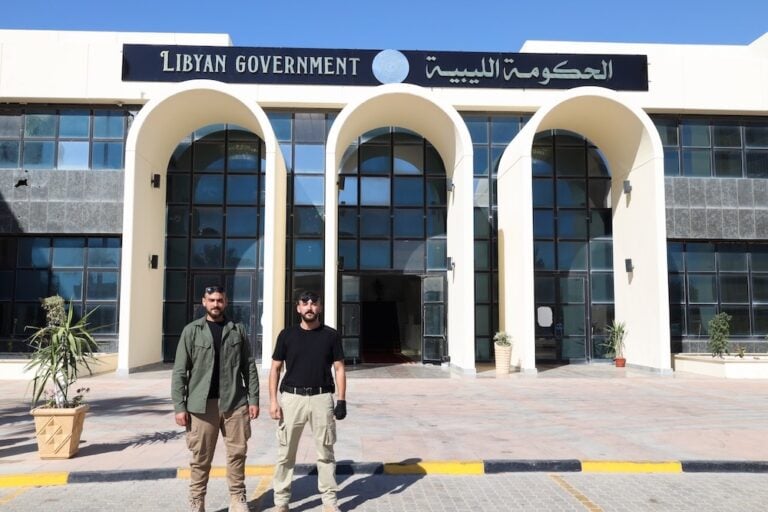(RSF/IFEX) – RSF has expressed “horror” at the death by torture of Libyan writer and journalist Daif Al Ghazal, who wrote articles critical of the regime for the London-based online newspaper “Libya Al-Youm”. His body was found on 2 June 2005. “We share the shock of his ‘Libya Al-Youm’ colleagues and his family’s grief, and […]
(RSF/IFEX) – RSF has expressed “horror” at the death by torture of Libyan writer and journalist Daif Al Ghazal, who wrote articles critical of the regime for the London-based online newspaper “Libya Al-Youm”. His body was found on 2 June 2005.
“We share the shock of his ‘Libya Al-Youm’ colleagues and his family’s grief, and we support the request for an investigation which the family addressed to the Gaddafi Foundation, headed by the president’s son,” RSF said.
“We appeal to the Libyan authorities to clear up this gruesome case. If the investigation produces no results, the international community will once again have proof that Libya’s declared intention of bringing about real progress in human rights is not credible.”
According to Mohammed Abdul Malek, of the London-based human rights organisation Libya Watch, Al Ghazal was kidnapped by two armed men at around midnight (local time) on 21 May. They forced his car to a stop and took him away in their own vehicle. Mohammed al-Mirghani, a friend and fellow journalist who was with Al Ghazal at the time, was left unharmed. He said the two gunmen identified themselves as national security officials.
The family received no further news of Al Ghazal until his barely recognizable body was found on 2 June in the eastern city of Benghazi. The autopsy report referred to many signs of torture. Most of his fingers had been severed, and the body had multiple bruises and stab wounds. He had been killed by a gunshot to the head.
A government spokesman told the British news agency Reuters that the authorities were conducting an investigation and would announce the results as soon as possible, but he declined to comment about the possible identity of those responsible.
Justice Minister Ali Hasnaoui told Agence France-Presse that security service officials had been questioned by the Benghazi Prosecutor’s Office and had denied arresting Al Ghazal. He added that several people had been questioned and that evidence was being gathered.
Eight members of the family wrote to the Gaddafi Foundation, which is headed by the Libyan president’s son, Seif El-Islam, asking it to “intervene to clear up the circumstance of [his] disappearance and death” and “to open an investigation into the case.”
Al Ghazal, 32, worked for 10 years for the pro-government Movement of Revolutionary Committees (MRC) before leaving the group in 2003 over a disagreement. The MRC defines itself as a “political and cultural movement supporting the installation of people’s power”, in accordance with President Muammar Gaddafi’s teachings.
Al Ghazal also wrote for four years for the daily newspaper “Al-Zhaf al-Akhdar” (“The Green March”), which belongs to the MRC. But he then took a strong stand on the corruption prevailing within the MRC and decided to stop writing for the government press.
Salem Mohammed, editor-in-chief of the London-based online newspaper libya-alyoum.com (“Libya Today”), said that for the past year, Al Ghazal had been writing articles for the website that were very critical of the MRC and the regime. “Libya Al-Youm” carries articles by some 60 writers and journalists who do not want to work for the government press.
In 2004, Al Ghazal issued an appeal to Libyan intellectuals to form a civil society committee against corruption, but it did not materialise. In March 2005, he was detained for questioning. He had also been threatened on several occasions by the MRC, which called him a “coward.” He often responded that he was not afraid of his detractors and would never be silenced.
“Daif Al Ghazal’s death is a serious setback to free expression and human rights in Libya as he was a journalist who was especially committed to combating corruption,” Libya Watch’s president said. The organisation expressed fears that he was kidnapped by “the extremists in the revolutionary committees movement.”
The government has complete control over the news media in Libya and press freedom is completely lacking. Even the MRC newspaper “Al-Zhaf al-Akhdar” has been temporarily closed several times for publishing articles that displeased the country’s leaders.


